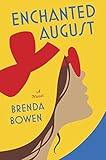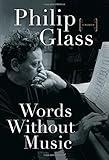 Despite all that, the author makes the story come together and the book is a light fun summer read, especially for those who like dabbling in reincarnation stories. Being a historical fantasy with a spiritual sub-plot the story also brings past social mores, politics, and people from far-flung places to life, as the reader and protagonists rush about from ancient Egypt, through Russia, to other parts unknown.
Despite all that, the author makes the story come together and the book is a light fun summer read, especially for those who like dabbling in reincarnation stories. Being a historical fantasy with a spiritual sub-plot the story also brings past social mores, politics, and people from far-flung places to life, as the reader and protagonists rush about from ancient Egypt, through Russia, to other parts unknown.
Author:
A review of Enchanted August by Brenda Bowen
 In Bowen’s Enchanted August, Lottie and Rose are New York mothers of young children, dissatisfied at the way their lives are working out. Lottie’s husband seems to have lost interest in her. Rose’s husband is writing thrillers under a pseudonym, but her poetic talent has been overshadowed by her maternal role. The two women meet at the bulletin board of their children’s preschool, both drawn to a notice about a Maine cottage for rent for August.
In Bowen’s Enchanted August, Lottie and Rose are New York mothers of young children, dissatisfied at the way their lives are working out. Lottie’s husband seems to have lost interest in her. Rose’s husband is writing thrillers under a pseudonym, but her poetic talent has been overshadowed by her maternal role. The two women meet at the bulletin board of their children’s preschool, both drawn to a notice about a Maine cottage for rent for August.
A Conversation with Brenda Bowen
 The author of Enchanted August talks about how the idea for her latest novel developed, on the relationship between her book and the original Enchanted April, her feelings about Maine, her literary influences, her writing process, her perfect summer day, and her own Hopewell Cottage imaginary houseguests.
The author of Enchanted August talks about how the idea for her latest novel developed, on the relationship between her book and the original Enchanted April, her feelings about Maine, her literary influences, her writing process, her perfect summer day, and her own Hopewell Cottage imaginary houseguests.
A review of Entrevoir by Chris Katsaropoulos
 The book feels earnest. It pulls the reader along. From the beginning Jacob’s transformation/journey is about the role of artist as seer and priest in the world. Ideas of reincarnation, Identity, and the Self or Cosmic spirit all come together in an attempt to sing of life and time.
The book feels earnest. It pulls the reader along. From the beginning Jacob’s transformation/journey is about the role of artist as seer and priest in the world. Ideas of reincarnation, Identity, and the Self or Cosmic spirit all come together in an attempt to sing of life and time.
A review of Autoplay by Julie Babcock
 It is tempting to say that Autoplay by Julie Babcock is a collection of poems about Ohio. It is and more. One way to put order to this book, a task that is almost if not totally impossible to do, is to separate the poems into categories. The Ohio poems would be one category. Another category would be poems dealing with childhood and adulthood.
It is tempting to say that Autoplay by Julie Babcock is a collection of poems about Ohio. It is and more. One way to put order to this book, a task that is almost if not totally impossible to do, is to separate the poems into categories. The Ohio poems would be one category. Another category would be poems dealing with childhood and adulthood.
Joan Schweighardt on The Accidental Art Thief
The author of The Accidental Art Thief reads from and talks about her new novel and the inspiration for it, her quirky “under-the-radar” characters, her gorgeous Albuquerque setting, some of her key themes, on keeping secrets, her new work in progress, and…
Interview with Mary Kay Andrews
 The author of Beach Town talks about why she chose to write about Hollywood, the research she did, the real town behind Cypress Key, her Floridian setting, her characters (including the dachshund), her favourite beach town, her work in progress, and more.
The author of Beach Town talks about why she chose to write about Hollywood, the research she did, the real town behind Cypress Key, her Floridian setting, her characters (including the dachshund), her favourite beach town, her work in progress, and more.
A review of Words Without Music by Philip Glass
 There is so much to learn here, not just about Glass, but about ourselves—how to live, how to learn, how to create. Towards the end of the book, Glass talks about his work on his Cocteau Trilogy in which he says, of Cocteau, that he “is teaching about creativity in terms of the power of the artist, which we now understand to be the power of transformation” (378) The same can be said of Words Without Music.
There is so much to learn here, not just about Glass, but about ourselves—how to live, how to learn, how to create. Towards the end of the book, Glass talks about his work on his Cocteau Trilogy in which he says, of Cocteau, that he “is teaching about creativity in terms of the power of the artist, which we now understand to be the power of transformation” (378) The same can be said of Words Without Music.
A review of Finding Love by Carolyn Martinez
 Martinez’ new book, Finding Love Again, is another book full of stories about people who have made a go of love on their second or more attempts. Though the stories are presented without too much editorial interruption, Martinez provides a kind of cumulative wisdom as the book progresses, building up to practical tips to go along with such a wealth of anecdotal advice that it’s hard not to feel like it’s entirely possible to find true love, at any age.
Martinez’ new book, Finding Love Again, is another book full of stories about people who have made a go of love on their second or more attempts. Though the stories are presented without too much editorial interruption, Martinez provides a kind of cumulative wisdom as the book progresses, building up to practical tips to go along with such a wealth of anecdotal advice that it’s hard not to feel like it’s entirely possible to find true love, at any age.
Interview with Joshua Braff
 The author of The Daddy Diaries talks about his new book and its parallels with his own life, about the challenges of drawing from real life for his fiction, about the dearth of stay-at-home dads in fiction, about being a house-husband, the challenges of writing at home with children, about where, and how he writes, and lots more.
The author of The Daddy Diaries talks about his new book and its parallels with his own life, about the challenges of drawing from real life for his fiction, about the dearth of stay-at-home dads in fiction, about being a house-husband, the challenges of writing at home with children, about where, and how he writes, and lots more.